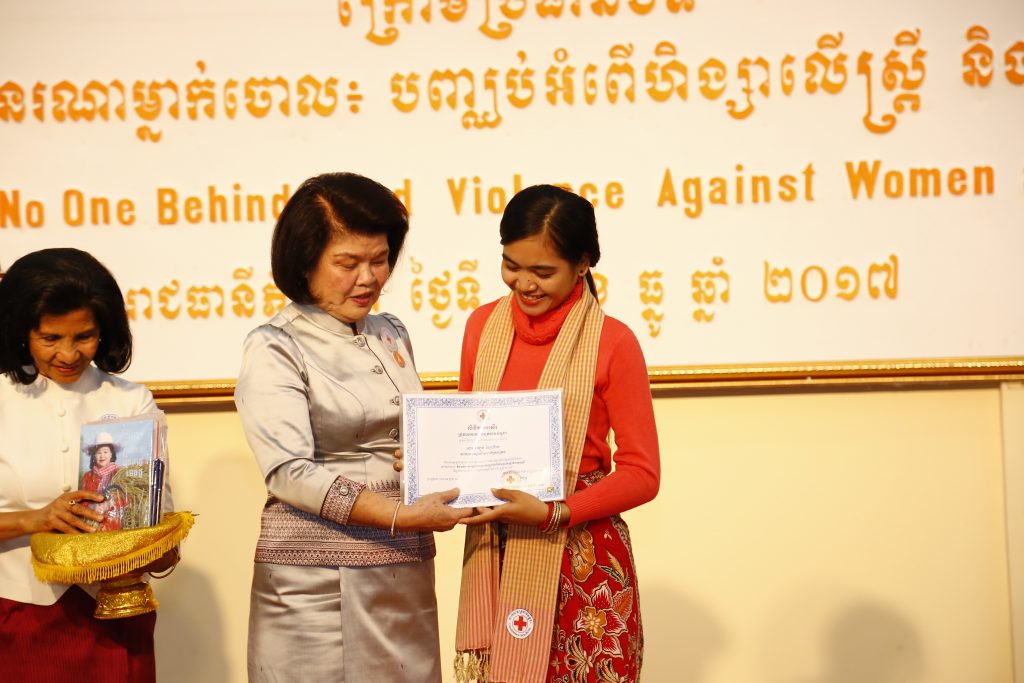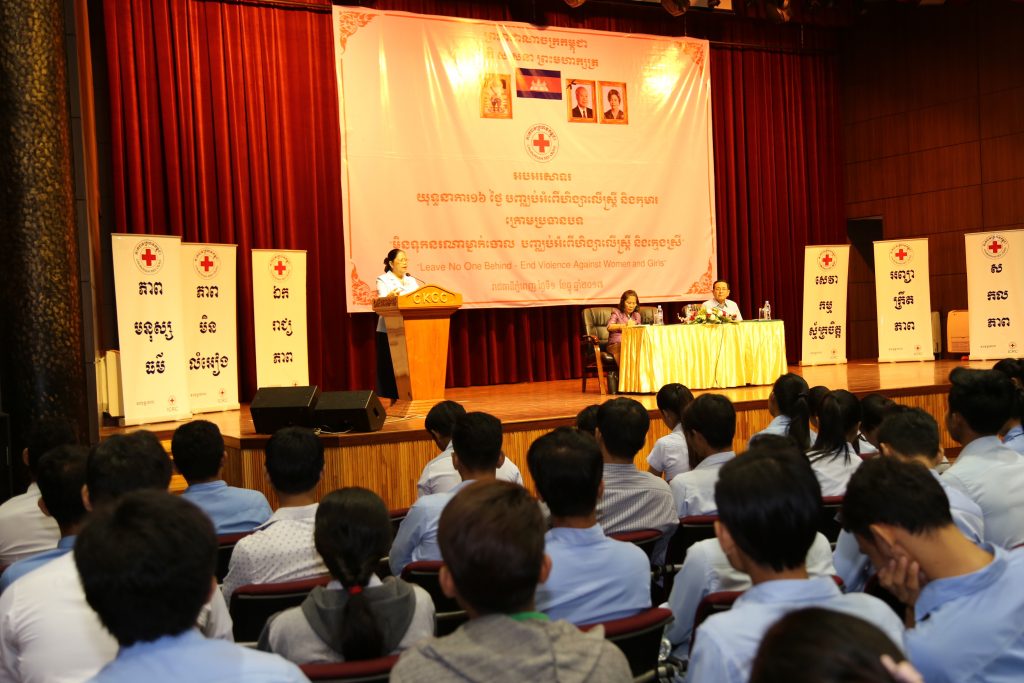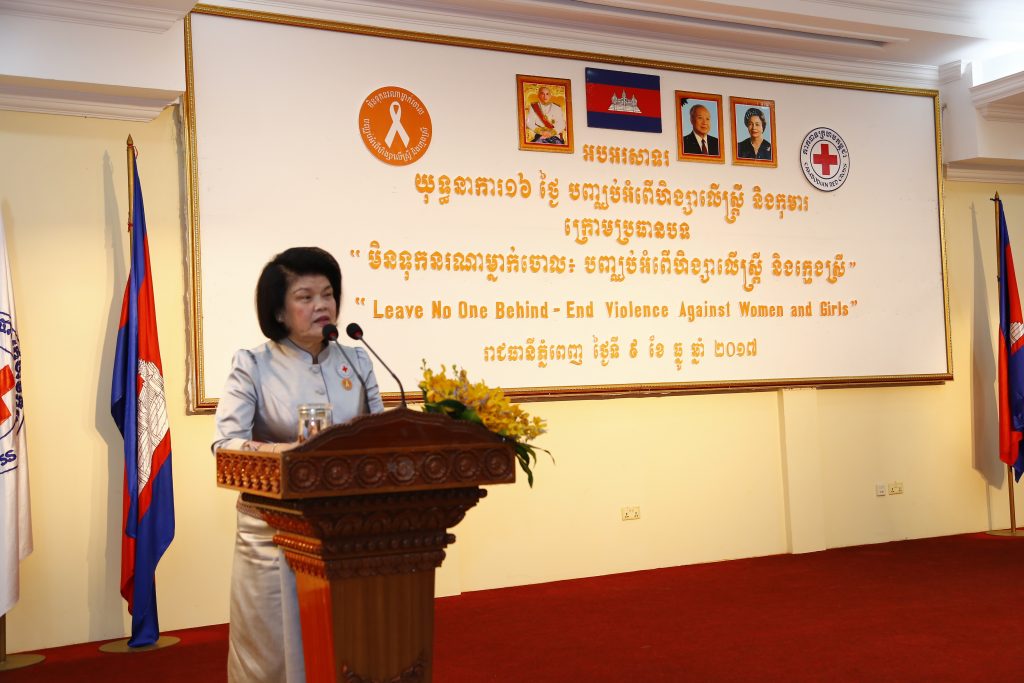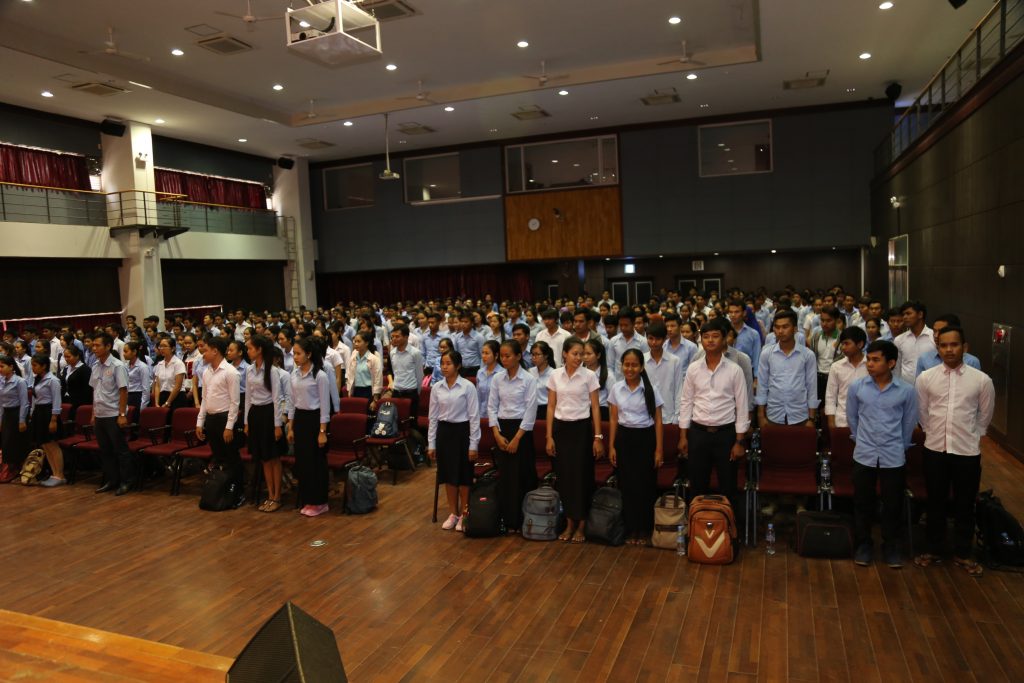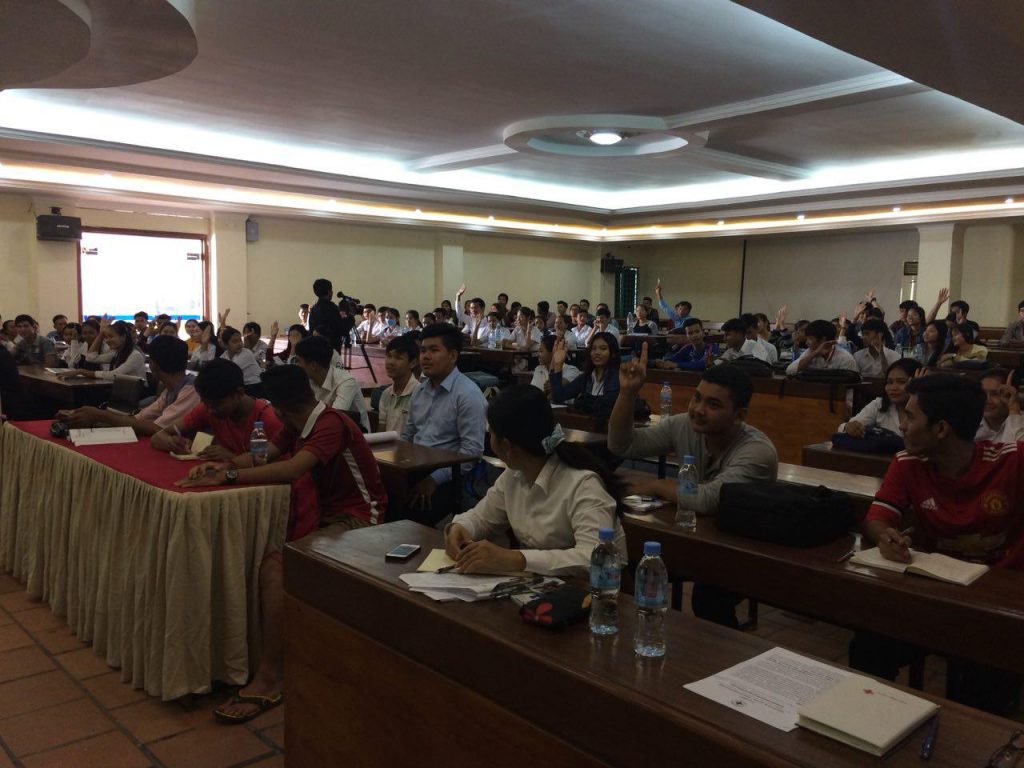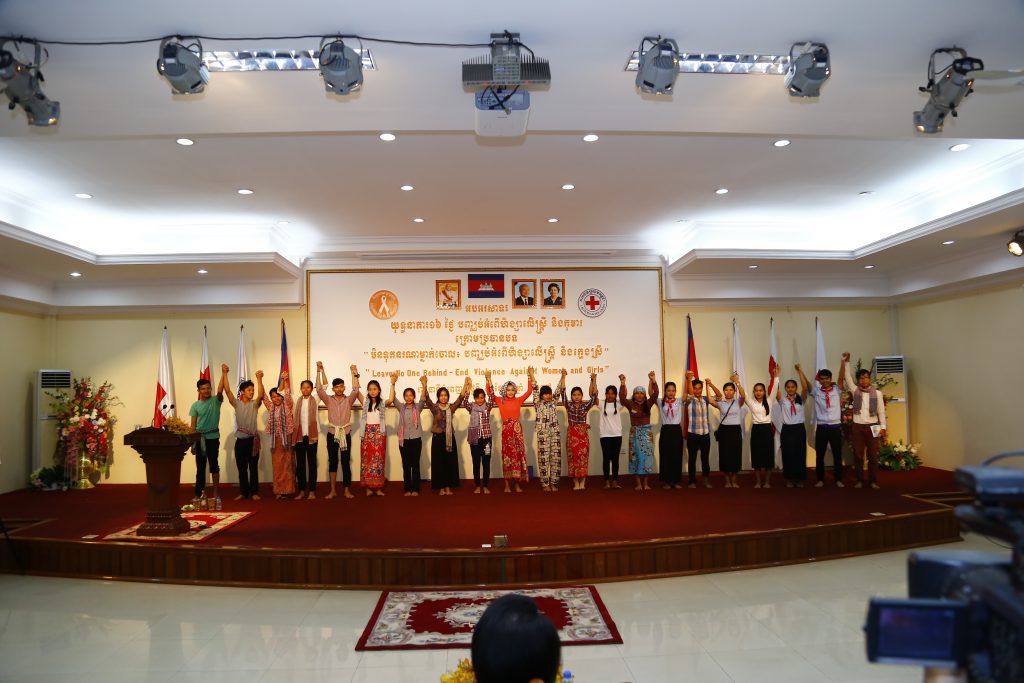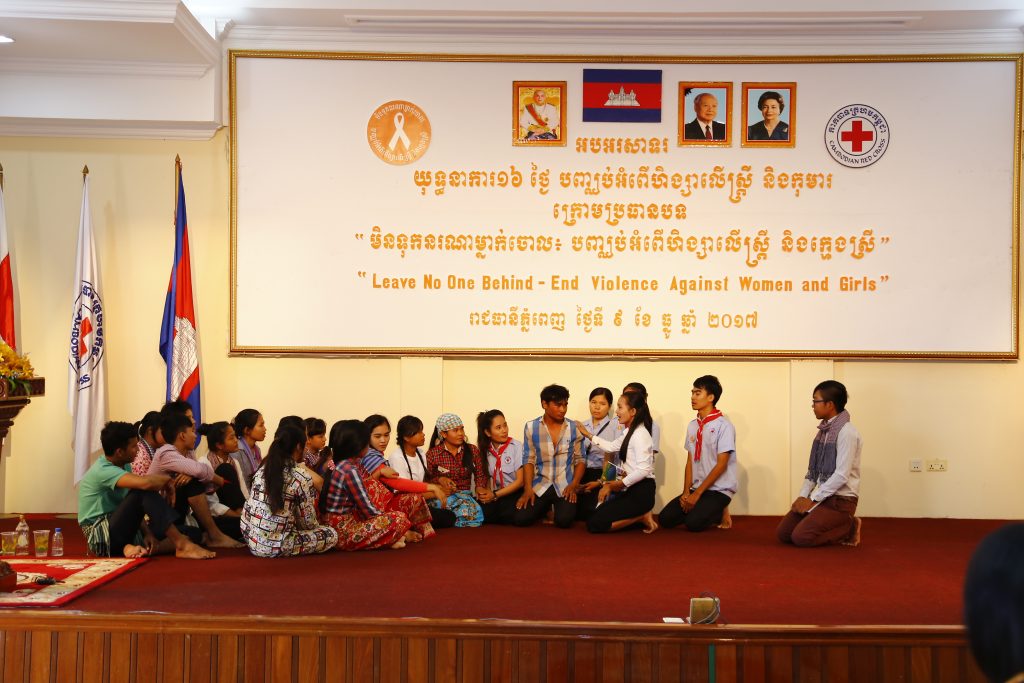
- This event has passed.
16 Days of Activism Against Gender-Based Violence | 25 November – 9 December 2017 | Cambodia
25 November , 2017 - 9 December , 2017
Several reports show that Cambodian has seen a gradual decrease of domestic violence against women and girls since 2000. However, according to Cambodia Gender Assessment in 2014, there are still number of challenges facing the country in its effort to end gender-based violence (GDV), including but not limited to:
- Growing number of reports on rape and sexual violence in the family;
- Sexual harassment at workplaces and in communities;
- Limited access to social and legal support services to survivors.
Between 25 November to 9 December 2017, CRC conducted activities under the campaign “16 Days of Activism Against Gender-Based Violence” on the topic “Leave No One Behind – End Violence Against Women and Girls.” The expected results and measurements for success include:
- At least 30 Red Cross Youths attending the half-day workshop on GBV.
- At least 750 youth from four universities attending GBV awareness
- At least 200 youth, Red Cross staff, and volunteers attending the 16 Days Campaign for the elimination of violence against women at the Cambodian Red Cross National Head Quarter
- Number or people around country to receive GBV information through this media National TV, Newspapers
Number of activities were conducted at four universities, with 872 students participated, from 25 November to 7 December. The activities included a mix of brainstorming, plenary discussion, presentation, and Q&A facilitated by the resource persons from the Ministry of Women Affairs.
On 9 December, CRC conducted a special event at the CRC National Head Quarter with 200 participants including representatives from the Ministry of Women Affairs, CRC leaders, staff, Red Cross youth and Red Cross youth advisors, deans and directors of universities, students, Red Cross partners, and other stakeholders).
Total number of participants attending in the 16 Days Activism was 1,072 participants, of which about 40% are female.
Supporting Documents:
![]()


